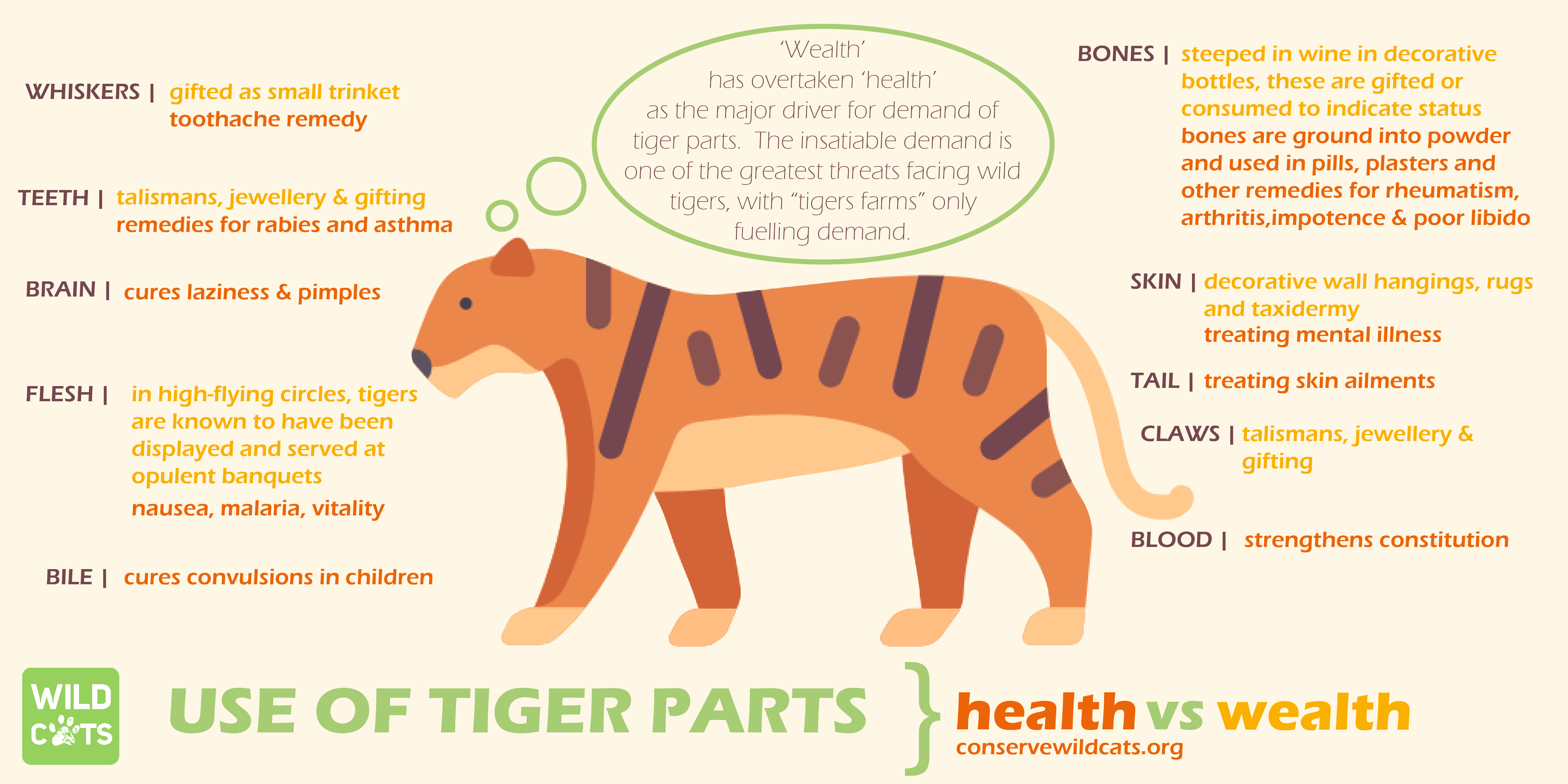
Anti-poaching is a conservation priority for our projects fighting the insatiable demand for wild tiger parts. Worrying trends highlight insidious “poach-to-order” operations, led by well-funded global criminal syndicates. Ironically the poacher tends to take the greatest risk for the lowest reward.
But why do people poach tigers | HEALTH
We are fast to blame demand for wild tigers parts on Traditional Chinese (Asian) Medicine. Though their use was outlawed in the 1990s, every single part of the tiger is thought to cure some form of ailment. Tiger bone wine has been used for centuries predominantly for its health benefits. Among Chinese consumers in Laos, tiger bone wine is marketed as a virility product for men (scientific research shows no effect on virility). Although the Chinese government banned the use of tiger parts in 1990s, the strong cultural belief in the medicinal power of tiger parts means there is continued demand, fueling black market trade.
Some believe that farming tigers, as we would cows or chickens, could alleviate the threat to wild tigers. In this 2014 paper about attitudes towards tiger farming, Beijing respondents temded to favour arguments in support of the use of farmed tigers. WildCats believe that tiger farms only stimulate demand, offer no conservation value, only normalising the consumption of tiger parts.
Why do people poach tigers | WEALTH
This EIA report delved further into the world of tiger farms, finding that consumer demand had shifted from the supposed health benefits, to use as an ostentatious display of wealth. As the picture in the header shows, skins are once again being sought as home decorations and their bones steeped in wine to be gifted. There have even been horrifying instances of businessmen being apprehended for killing and eating tigers.
This trend towards using tigers as a symbol of wealth has seen organisations like IFAW launch major public campaigns appealing to consumer morality. Poignantly, IFAW’s campaign asked: “When we take the tusk out of elephants, the bone out of tigers, the gall bladder out of bears, what does that make us? Are we merely beings with no humanity?”

Crissie Constantinou

